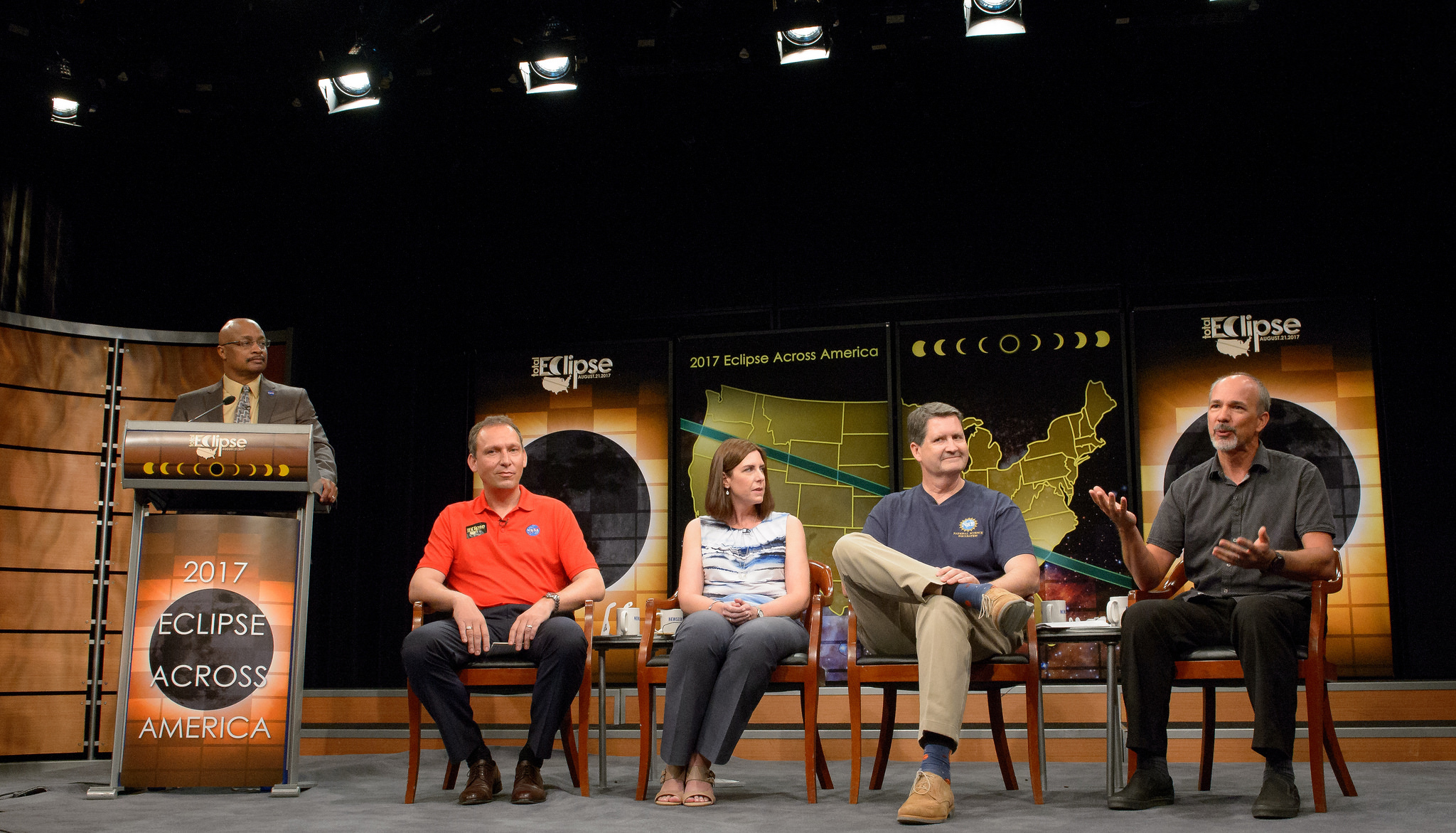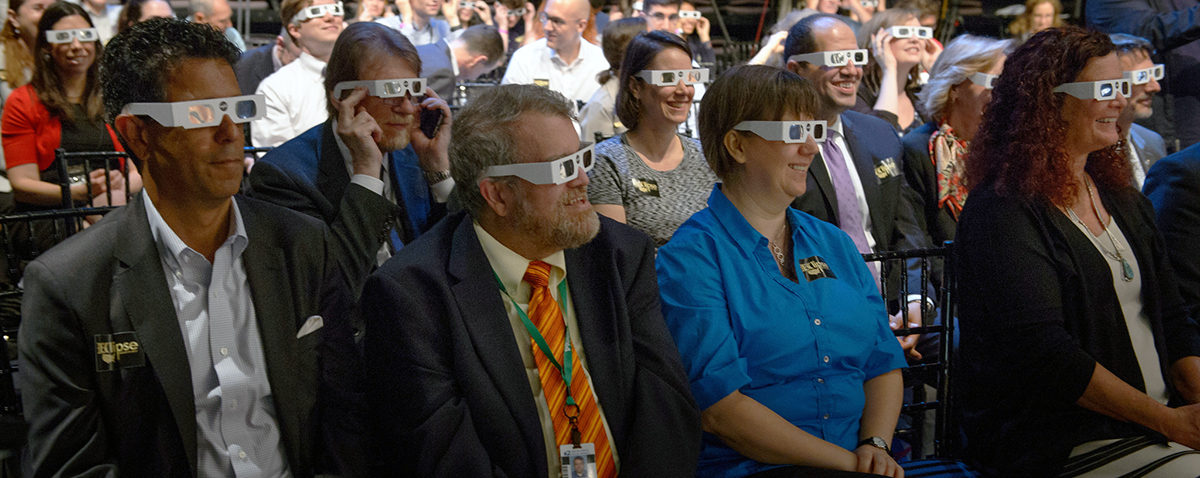Will August's Eclipse Be Most Watched Ever? Totally
WASHINGTON — The total solar eclipse that will sweep across the U.S. on Aug. 21 may very well be the most-watched solar eclipse in history, NASA scientists said Wednesday (June 21) at a news briefing here at the Newseum.
About 12 million people live along the line of totality, a 70-mile-wide (113 kilometers) path from Oregon to South Carolina where the moon will block out the sun's light for a few minutes during the eclipse. Close to 200 million others live within a day's drive to that path, and it's going to cause some of the worst traffic jams in American history, Martin Knopp, an official with the Federal Highway Administration at the U.S. Department of Transportation, said during the briefing.
But the entire continental U.S. and other areas nearby will be able to see at least a partial eclipse. Anyone who isn't watching the total (or partial) eclipse in person will have plenty of options to watch the eclipse live online. [Total Solar Eclipse 2017: Path, Viewing Maps and Photo Guide]

NASA will broadcast live eclipse footage from 11 space-based telescopes — including two of the National Oceanic and Atmospheric Administration's Earth-monitoring satellites — on NASA TV and online on Aug. 21. NASA's networks alone can bring in billions of viewers, Thomas Zurbuchen, associate administrator of NASA's Science Mission Directorate here in Washington, said during the briefing.
And that's not all – other groups will be providing more perspectives of the eclipse. Researchers at Montana State University in Bozeman, Montana, plan to send dozens of high-altitude balloons into the sky on Aug. 21 to observe the eclipse with high-definition cameras and broadcast their images live online as well. The Slooh Community Observatory will also share live footage of the eclipse from ground-based telescopes.

Thanks to social media and the internet, there are plenty of ways to see the eclipse, and millions of people will be able to experience it firsthand. "My personal feeling is that it will be the most watched, but I can't prove that scientifically," Zurbuchen said.
"The assertion is really hard to prove, because we don't have really hard numbers on any [previous eclipses]. I think it's definitely one of the top candidates, if not the most- watched eclipse. If we take all the vantage points, all the assets together, and all the channels we're going to put out, it's going to be hard to beat, frankly."
Get the Space.com Newsletter
Breaking space news, the latest updates on rocket launches, skywatching events and more!
Email Hanneke Weitering at hweitering@space.com or follow her @hannekescience. Follow us @Spacedotcom, Facebook and Google+. Original article on Space.com.
Join our Space Forums to keep talking space on the latest missions, night sky and more! And if you have a news tip, correction or comment, let us know at: community@space.com.

Hanneke Weitering is a multimedia journalist in the Pacific Northwest reporting on the future of aviation at FutureFlight.aero and Aviation International News and was previously the Editor for Spaceflight and Astronomy news here at Space.com. As an editor with over 10 years of experience in science journalism she has previously written for Scholastic Classroom Magazines, MedPage Today and The Joint Institute for Computational Sciences at Oak Ridge National Laboratory. After studying physics at the University of Tennessee in her hometown of Knoxville, she earned her graduate degree in Science, Health and Environmental Reporting (SHERP) from New York University. Hanneke joined the Space.com team in 2016 as a staff writer and producer, covering topics including spaceflight and astronomy. She currently lives in Seattle, home of the Space Needle, with her cat and two snakes. In her spare time, Hanneke enjoys exploring the Rocky Mountains, basking in nature and looking for dark skies to gaze at the cosmos.









